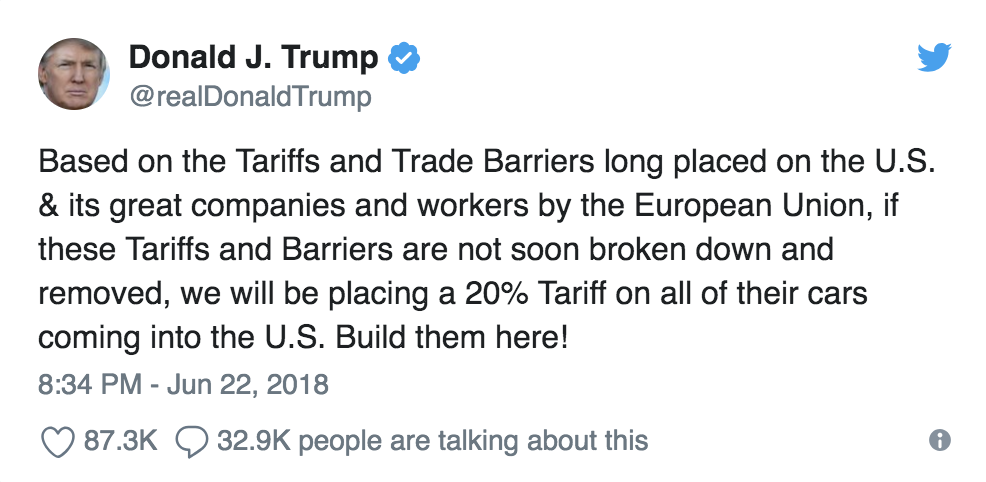Trump’s trade war isn’t working in the way he may have hoped. The EU, Canada, and Mexico have all fought back imposing their own tariffs. Tariffs ranging from $3 billion to 16.6 billion have been imposed on everything from food products to traditional “American” items like bourbon, blue jeans, and motorcycles. The auto industry may be the most impacted industry, and companies are starting to speak out.

GM
The Detroit-based automaker General Motors is already saying that the tariffs could lead to less American jobs, not more. The company warned that a trade war “could lead to a smaller GM, a reduced presence at home and abroad for this iconic American company.” The classic American car maker said that customers will feel a trade war and the demand for new vehicles could crash.
VOLVO
Swedish carmaker Volvo has nearly 300 dealerships across 48 states and over 10,000 employees in the US. Last year the company sold over 81,000 cars. For the most part the company it’s cars in Europe and China, but last year open its first US factory in South Carolina. The company said about the potential harm of tariffs, “by increasing vehicle costs and triggering retaliatory measures, tariffs would depress vehicle exports from the US.”
TOYOTA
Toyota is based in Japan, but argued companies outside of Detroit will also feel the pains of the tariffs. The company specifically pointed to the Toyota Camry, one of North America’s most popular cars.
“The Camry is built in Kentucky, and has been the best-selling car in America for 19 of the last 20 years and one of the best American-made cars you can buy. But even the Camry has about 30% non-U.S. content. This means the Camry would see a cost increase of $1,800 (based on a price of $23,645). Ultimately, this cost will likely be passed along to consumers in the form of higher prices.”
Harley-Davidson
Harley-Davidson already announced that it is being forced to move some of its jobs overseas. Harley said that the increased taxes couldn’t be passed onto the company. The additional cost will be somewhere between $90 million to $100 million annually. The company announced the move will happen in the next 9 to 19 months.















